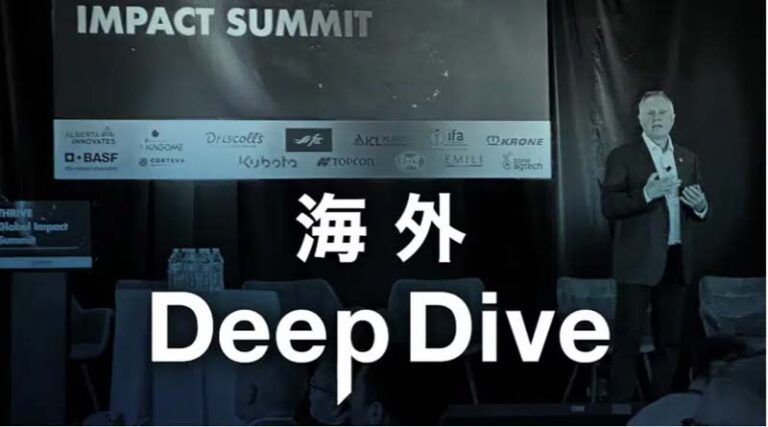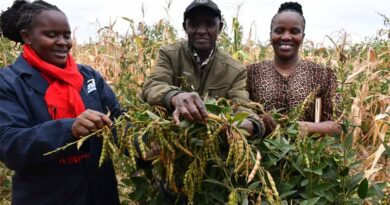
A Niche U.S. Agricultural VC Gains Prominence – Kagome Also Joins Forces in Silicon Valley
13 November 2025, US: The U.S. venture capital firm SVG Ventures is strengthening its presence in the agriculture technology sector. In addition to investing in promising startups emerging from Google, it has also partnered with Japan’s Kagome Co.. Leveraging its deep expertise and network, SVG is standing out even as most venture investments in the U.S. remain concentrated in artificial intelligence (AI).
Investment in Agriculture AI Originating from Google
“We have focused on agriculture and food, engaging with about 14,000 startups,” said John Hartnett, CEO of SVG Ventures, at his company’s event in Silicon Valley in late October. Founded in 2010, SVG Ventures is based in Silicon Valley and invests in startups in the agricultural sector. Through its accelerator program called THRIVE, it not only provides funding but also actively shares know-how with entrepreneurs. One of SVG’s investees is Heritable Agriculture, a U.S. startup that uses AI to analyze plant genetic data to predict traits such as yield and productivity, as well as to run agricultural simulations. The technology could significantly shorten the traditionally time-consuming and trial-based process of crop breeding. Heritable Agriculture was spun out from Google X, the research organization under Alphabet, in January. Google X is known for its “moonshot” projects tackling long-term challenges and has produced innovations such as the autonomous driving company Waymo. Brad Zamft, CEO of Heritable Agriculture, worked on climate change issues at Google X before launching the startup. “Google X gave us the freedom and resources to truly test bold ideas like ‘programmable plants.’ It would have been difficult to do this if we had started as a VC-backed company from the beginning,” he reflected.
SVG’s Strategic Investments and Global Reach
After spinning off, Heritable received investment from SVG Ventures. Zamft noted, “SVG has an incredibly rich network in agriculture, and through introductions we’ve even signed commercial agreements with other companies.” While major firms like Sequoia Capital are prestigious backers for startups, SVG’s deep agricultural expertise provides a different kind of advantage. Though smaller in scale and recognition than big-name VCs, SVG’s domain knowledge gives it a competitive edge. Its investments extend beyond Silicon Valley to companies in Latin America and Asia. In September 2024, SVG partnered with Kagome to launch a new $50 million (approx. ¥7.7 billion) fund with a ten-year duration, aimed at investing in promising agri-tech startups and fostering business synergies between Japanese corporates and Silicon Valley expertise.
Example: Investment in Japan’s EF Polymer
In September 2025, the joint fund announced an investment in EF Polymer, a Japanese agri-tech startup developing water-absorbing agents for agriculture. The company was founded in Okinawa by Narayan Garljale, an entrepreneur from India who came to Japan through the Okinawa Institute of Science and Technology (OIST) startup program. SVG CEO John Hartnett told Nikkei Financial: “We can support Japanese companies in expanding globally.” By leveraging SVG’s U.S. and international networks, portfolio startups can more easily secure clients and validate technologies. On the partnership with Kagome, he added, “It gives us stronger access to farmers. No other VC actually owns farmland.”
Challenging Funding Environment for Agri-Tech Startups
Raising funds has become increasingly difficult for agri-tech startups. According to data from U.S. research firm PitchBook, total investment in the agri-tech sector in 2024 fell to about $6 billion, less than half of what it was three years earlier. The number of deals also dropped by over 30%, to 853 in 2024. Since the U.S. Federal Reserve began rapid interest rate hikes to combat inflation, the environment for initial public offerings (IPOs) has cooled. This has made it harder for VCs to envision clear paths to exit, leading to more cautious investment behavior. Agri-tech and biotech founders said that “VCs now expect clear plans for profitability.” Unlike a few years ago, even startups can no longer afford to operate at a loss for extended periods under the pretext of long-term investment — except for some AI-related companies like OpenAI. Still, firms like SVG Ventures continue to invest in specialized sectors. SVG’s persistence demonstrates the depth and diversity of the U.S. startup ecosystem — one where innovation continues even outside the hype cycles of dominant fields like AI.
📢 If You’re in Agriculture, Make Sure the Right People Hear Your Story.
From product launches to strategic announcements, Global Agriculture offers unmatched visibility across international agri-business markets. Connect with us at pr@global-agriculture.com to explore editorial and advertising opportunities that reach the right audience, worldwide.






